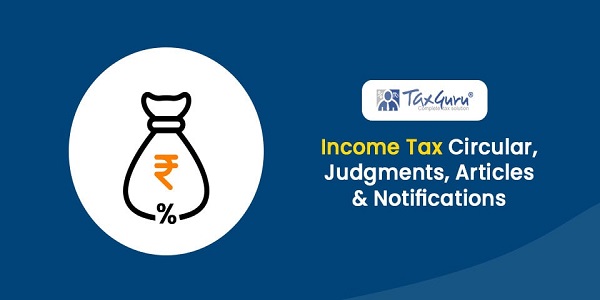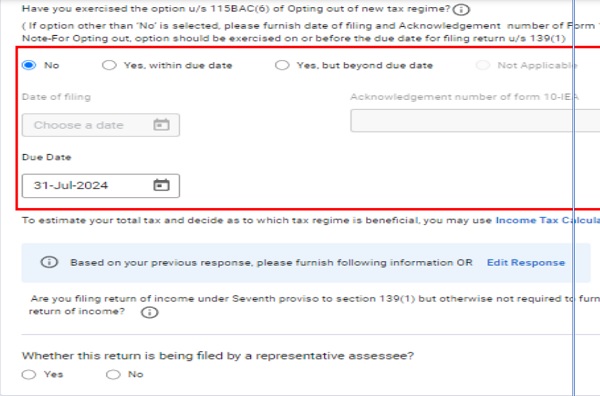Several misuse or abuse of Section 10 of IBC by Corporate Debtor with intention to defraud the stakeholders
Pursuant to section 6 of Insolvency and Bankruptcy Code, 2016 (in short IBC), where any corporate debtor commits a default, a financial creditor, an operational creditor or the corporate debtor itself may initiate corporate insolvency resolution process (in short CIRP) in respect of such corporate debtor in the manner as provided under this chapter (i.e. Chapter II -Corporate Insolvency Resolution Process). This section provides that where a corporate debtor has defaulted in paying a debt that has become due and payable but not repaid, CIRP may be initiated in the manner as provided in this Chapter in respect of such corporate debtor by a financial creditor, an operational creditor or the corporate debtor itself.
Section 10 of IBC provides for initiation of CIRP by corporate applicant including corporate debtor itself when there is a default committed by the corporate debtor. This provision is unique and dissimilar from other provisions of IBC as the Corporate Debtor is empowered to move a petition against itself to initiate the CIRP and declare itself as Insolvent. The provision under this section is favouable not only to the creditors (i.e. operational or financial creditors) but also to other concerned stakeholders of the Company. The Adjudicating Authority [i.e. National Company Law Tribunal (in short NCLT)] pursuant to Section 60(5) of IBC has the jurisdiction to entertain and dispose of an application under Section 10.
Section 5(5) of IBC defines ‘Corporate Applicant’ as follows:
(a) A corporate debtor; or
(b) A member or partner of the corporate debtor who is authorized to make an application for the corporate insolvency resolution process or the pre-packed insolvency resolution process, as the case may be, under the constitutional document of the corporate debtor; or
(c) An individual who is in charge of managing the operations and resources of the corporate debtor; or
(d) A person who has the control and supervision over the financial affairs of the corporate debtor.
The aforesaid provision is comprehensive, as the meaning of the Corporate Applicant is not restricted to a Corporate Debtor and includes the Authorized Representatives appointed on behalf of the Board of the Debtor to make an application under the respective provider. Therefore, it shall be assumed that the aforesaid is a clarificatory provision that is construed to give a wider meaning to the term- ‘Corporate Applicant.’
It can be said that although Section 10 of IBC provides a right in the hands of Corporate Applicants including Corporate Debtors itself to resolve their insolvency especially in the case where its creditors may be indisposed to do so. However, several misuse or abuse of Section 10 by the corporate debtor cannot be ignored because the admission of CIRP leads to moratorium for the benefit of the debtor.

It should also be noted that for the success of Section 10, it must be read with Section 65 [Fraudulent or malicious initiation of proceeding] and Section 66 [fraudulent trading or wrongful trading] of IBC. While Section 65(1) of IBC imposed the penalty upon the applicant if it initiates CIRP fraudulently or with malicious intent for any purpose other than for the resolution of insolvency, Section 66(2) of IBC made director or partner of the corporate debtor personally liable for what is generally known as fraudulent trading or wrongful trading.
NCLT have discretion to reject the debtor’s application where the debtors misuse the provisions for CIRP under the IBC. NCLT has time and again reaffirmed the purpose of the code and has made clear that the spirit of law is to provide resolution to distressed Companies. However, the provisions are misused by the Corporate Applicant with the intention to defraud the stakeholders.
In the case of Innoventive Industries Ltd. v. ICICI Bank [Company Appeal (AT) (Insolvency) No. 1 & 2 of 2017], the National Company Law Appellate Tribunal (in short NCLAT) held that the NCLT have discretion to reject the debtor’s application under section 10 of IBC on the ground that where the debtor has made an application for CIRP with malicious intention to take advantage of the moratorium provisions of the IBC.
In the matter of Leo Duct Engineers and Consultants Ltd, the corporate debtor “Leo Duct” had an outstanding liability of Rs.32 crores towards Banks. Since, the Leo Duct was not in a position to discharge its liability, so, it made an application u/s 10 of IBC to initiate CIRP. The moment NCLT admits of application u/s 10 of the IBC 2016 it has to declare moratorium. Somehow Banks who had already initiated proceedings under SARFAESI Act 2002 got to know regarding moving of the application of CIRP by LeoDuct in the NCLT, therefore, they approached NCLT to dismiss application made by LeoDuct, positing such move being a blatant abuse of law. NCLT, Mumbai held that for admission of CIRP by corporate applicant including corporate debtor under Section 10, the adjudicating authority has to consider the merits of each case and to see beyond what meets the eye, and also requires due application of mind before taking any decision. It has been further held by NCLT that application for CIRP should be rejected on the following grounds:-
1) Where initiation of the CIRP shall cause irreparable loss and injury to the creditors and an uncalled for protection to the borrowers and various guarantors.
2) Where the admission of the CIRP would have a serious impact on the financial creditors who have already set the wheel in motion to secure their debts.
In the case of Unigreen Global Private Ltd., NCLT, Principal Bench, New Delhi held that if the corporate debtor does not disclose all the facts including facts in relation to the debts owed by it to its creditors and were trying to misuse the provisions for CIRP under IBC for only taking benefit of moratorium on actions against the corporate and its creditors, the application for CIRP would be rejected. The corporate debtor has made an application in NCLT to initiate CIRP as it was unable to discharge its outstanding liabilities of Rs 100 Crores. The Creditor Bank argued that the Corporate Debtor with the aim to delay the payment had already initiated several civil suits and had also preferred appeal u/s 17 of the SARFAESI Act 2002. The NCLT after verifying all documents presented by Banks observed that admission of the CIRP application would invoke the application of moratorium scuttling all legal proceedings thus, it would unjustly restrain bank from exercising security interest under SARFAESI Act 2002 over the securities. Thus, the NCLT not only dismissed application but also imposed a penalty of Rs. 10,00,000/- on Unigreen and its director under section 65 of the IBC.
Remark: In view of the above, please note that where:-
1) the debtor has made an application for CIRP with malicious intention to take advantage of the moratorium provisions of the IBC.
2) initiation of the CIRP shall cause irreparable loss and injury to the creditors and an uncalled for protection to the borrowers and various guarantors.
3) the admission of the CIRP would have a serious impact on the financial creditors who have already set the wheel in motion to secure their debts.
4) Where the corporate debtor does not disclose all the facts including facts in relation to the debts owed by it to its creditors.
the NCLT have discretion and may reject the corporate debtor’s application for CIRP under Section 10 of IBC .
*****
Disclaimer: Nothing contained in this document is to be construed as a legal opinion or view of either of the author whatsoever and the content is to be used strictly for informational and educational purposes. While due care has been taken in preparing this article, certain mistakes and omissions may creep in. the author does not accept any liability for any loss or damage of any kind arising out of any inaccurate or incomplete information in this document nor for any actions taken in reliance thereon.


























Kindly fire the person who wrote this article. It is very misleading and incorrect
Kindly highlight the specific discrepancy